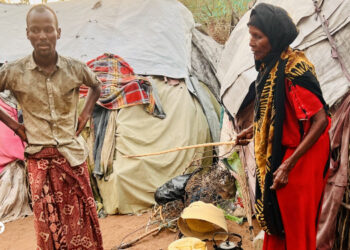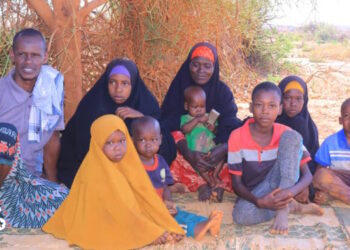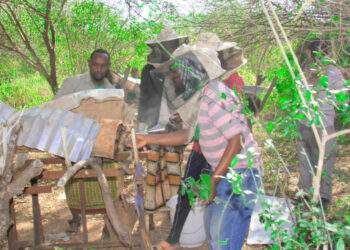(ERGO) – Conflict between Puntland forces and the terrorist group Islamic State, or Daesh, is preventing local farmers in Bari region from accessing their frankincense trees, whose harvests they depend on for a living.
Around 2,500 rural families who trade in frankincense have been facing severe hardships since last December when the war stepped up.
One of these farmers, Fowsi Abdullahi Abdirahman, is struggling to provide food and shelter for his family of 12. He and his family had to flee due to the conflict and he can no longer access his five frankincense in the hills of Isku-shuban, some 86 kilometres east of Qandala.
He now relies on food shared by neighbours, cooking only one meal a day with whatever they receive. He has no work and no income.
“The conflict has affected everyone. People used to work on frankincense cultivation to manage their daily lives. Now it’s stopped, and our lives have deteriorated. People have nothing to eat,” Fowsi told Radio Ergo.
Fowsi’s family has relied on frankincense cultivation for the last 10 years as their sole source of income. He harvested twice a year, earning enough profit to sustain them until the next harvest season.
When the cultivation stopped, he turned to his 40 goats, but they died due to drought and lack of rain in the last two rainy seasons.
His five children were studying at Omar Binu Cabdiasis Primary School, but Fowsi can no longer afford the $40 monthly school fees.
“I used to pay the children’s education from the frankincense earnings that have now stopped. I can’t find another way to pay for their school fees, so they are staying at home,” he said.
Fowsi owes $300 in debts to traders in the Balli Dhedin area. He took food on credit from them during the two months of displacement. He was planning to repay it this month, but that is no longer possible. Creditors are pressuring him to pay, and he is prevented from taking out new debt, worsening his situation.
“I have no plan to resolve this and I am feeling in despair,” he said.
Other frankincense farmers in the area face similar challenges. Mahmoud Mohamed Mahmoud abandoned four trees he had cultivated for six years due to the conflict. The trees, located on mountain tops, are inaccessible and he fears being caught in crossfire or bombardments.
Mahmoud’s family also relies on help from neighbours to cook one meal a day, which is difficult for young children to endure. Shops that used to extend credit have closed their doors, leaving families to pool resources to survive.
“When there are difficult circumstances, families help each other,” Mahmoud said. “We put things together and give them something to cook.”
The food shortage is compounded by a lack of water. In the Dhurbo area, where they are staying now, water costs $6 per barrel. Mahmoud raises 50 goats, but they are thin and produce neither meat nor milk and couldn’t be sold in the market. He lacks the means to buy them fodder or grass.
“Life is hard,” Mahmoud said. “Sometimes you get what you need to eat, sometimes you don’t. The worst burden is that water and food are not available.”
The commissioner of Gumbax, Mohamed Salah Omar, noted that the situation had affected the entire district. The main source of income for these towns is frankincense harvesting and export, which has been severely impacted by the conflict.
“People have left frankincense cultivation and are afraid of the war. There is a lot of need, and this has affected their lives. People fear stray bullets and are now congested and stuck in town areas,” the district commissioner said.
Climate change has already taken a toll on frankincense farmers with bouts of extreme weather such as drought and storms affecting the trees.
The families who have been displaced due to the current uncertainties surrounding the war with ISIS are from areas including Balli Dhedin, Beelwacatay, Hamure, Qandala, and Buq in Bari region.












